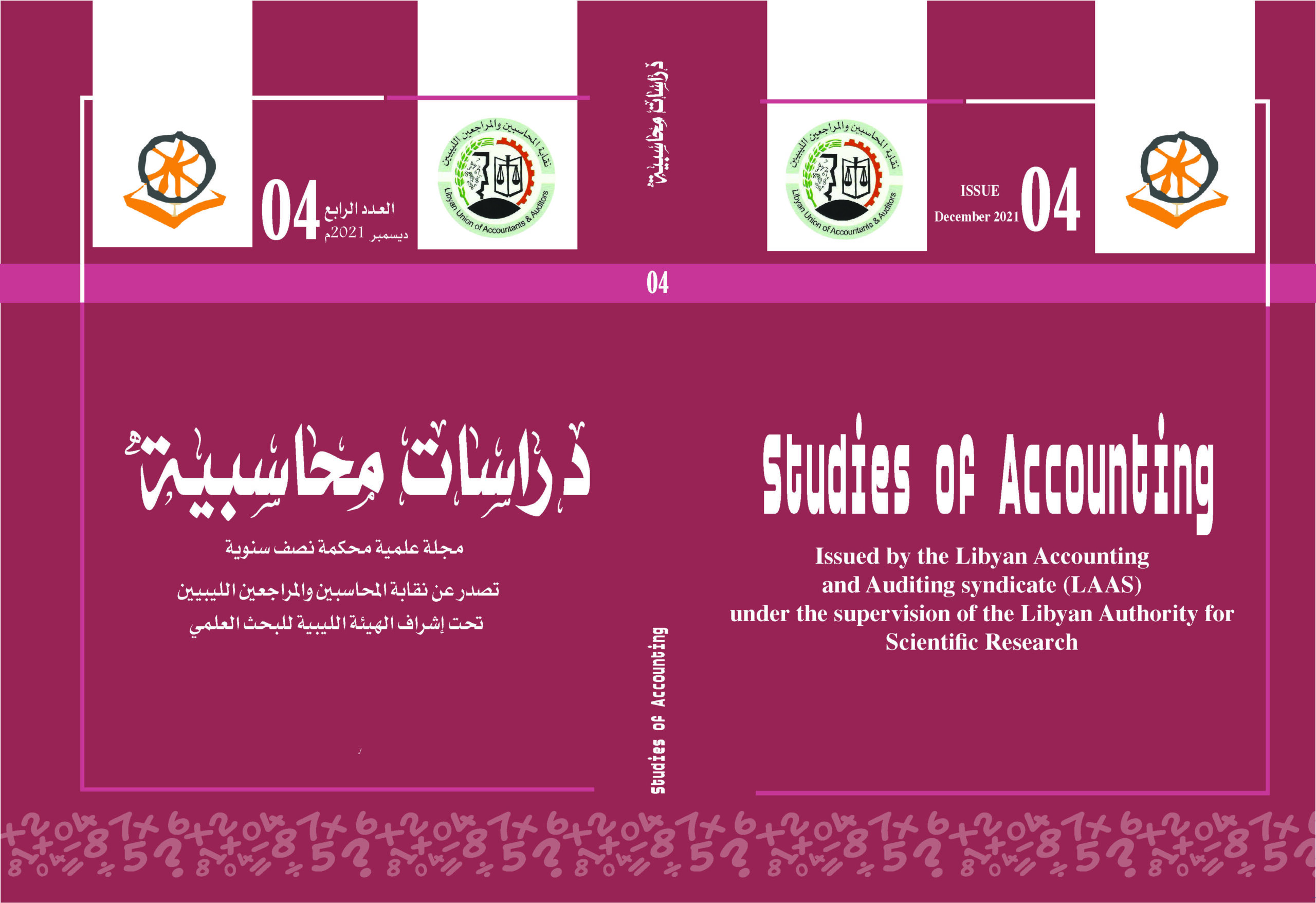ما مدى قبول طلبة واعضاء هيئة التدريس بقسم المحاسبة لتطبيق نظام التعليم الالكتروني في مجال المحاسبة في الجامعات الليبية
DOI:
https://doi.org/10.5281/zenodo.16379041Keywords:
نظام التعليم الالكتروني, التعليم االمحاسبيAbstract
هدفت الدراسة إلى التعرف على أهمية تطبيق نظام التعليم الإلكتروني في التعليم المحاسبي ومعوقات استخدامه بالجامعات الليبية من وجهة نظر اعضاء هيئة التدريس والطلاب في قسم المحاسبة بجامعة طرابلس كلية الاقتصاد والعلوم السياسية.. ولتحقيق أهداف الدراسة فقد تم تصميم استمارتي استبيان: خصصت إحداهما لأعضاء هيئة التدريس والأخرى للطلبة. حيث اشتملت كل استمارة على محورين أساسين: يتعلق الأول بإيجابيات ادخال التعليم الإلكتروني كأداة لتطوير التعليم المحاسبي والمحور الثاني يختص بالصعوبات التي تمنع تطبيق هذا النظام في الجامعات الليبية. وبتحليل اجابات المشاركين أظهرت النتائج أن أعضاء هيئة التدريس والطلبة يدركون جيداً أهمية استخدام نظام التعليم الإلكتروني في التعليم المحاسبي ويؤكد ذلك قيمة متوسط الاستجابة لكل منهما (3.91) و(3.84) على التوالي . بالإضافة الى انهما على توافق تام بأن هناك العديد من المعوقات التي تعترض تطبيق التعليم الالكتروني في التدريس الجامعي المحاسبي والتي تأتي في مقدمتها ضعف شبكة الانترنت, و عدم وجود أجهزة حاسوب كافية بمعامل الكلية ، ومشكلة انقطاع التيار الكهربائي لفترات طويلة.
Abstract:
This study aims to identify the importance of applying the e-learning system in accounting education. It also presents the obstacles to its use generally in Libyan universities from the perspective of faculty members and students and especially in the Accounting Department, Faculty of Economics and Political Science, University of Tripoli. To achieve the objectives of the study, two questionnaires were designed. We allocated one of them to faculty members while the other went to students. Each questionnaire includes two main axes: the first relates to the benefits of introducing e-learning as a tool for developing accounting education, while the second addresses the difficulties that prevent the application of this system in Libyan universities. After analyzing the participants' answers, the results showed that faculty members and students are well aware of the importance of using the e-learning system in accounting education. This is confirmed by the average response value for each of them being 3.91 and 3.84 respectively, and they are in complete agreement that there are many obstacles that hinder the application of e-learning in university accounting teaching. Some of the obstacles include weakness of the Internet, lack of sufficient computers in the college labs, and the problem of persistent power outages.

Downloads
Published
Issue
Section
License

Authors retain copyright and grant the journal right of first publication with the work simultaneously licensed under a Creative Commons Attribution (CC-BY) 4.0 License that allows others to share the work with an acknowledgment of the work’s authorship and initial publication in this journal.









